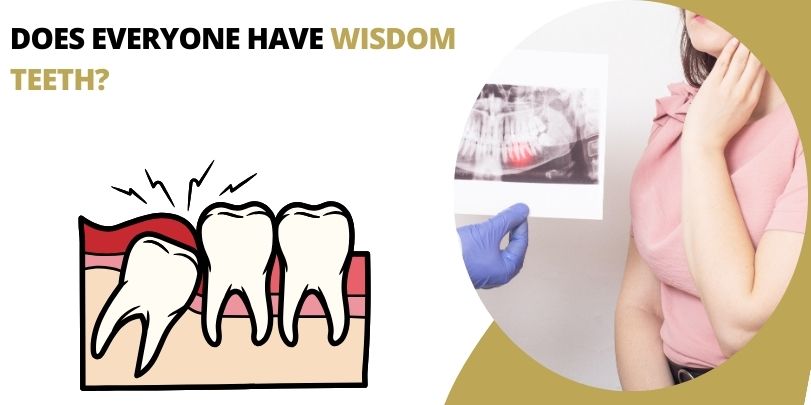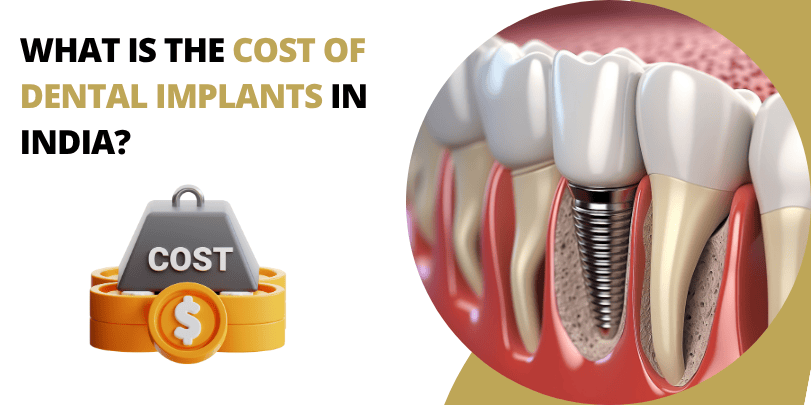They say with age comes wisdom, but does that also guarantee wisdom teeth?
Not quite. While most people have one to four wisdom teeth, a surprising number of individuals either have fewer or none at all. Whether you’ve experienced the discomfort of an emerging wisdom tooth or discovered during a dental X-ray that you don’t have any, it’s natural to wonder: is this normal? Let’s dig into the topic of wisdom teeth to answer all your questions.
Table of Contents
What Are Wisdom Teeth?
Wisdom teeth, also known as the third molars, are the last set of teeth to emerge in your mouth. They typically erupt between 17 and 24, a period often called the “age of wisdom” — hence the name. These teeth are located at the back of your mouth, two on the top and two on the bottom.
While the average adult has 32 teeth, including these molars, wisdom teeth have a unique reputation for causing more harm than good. Overcrowding, misalignment, and painful eruptions are just a few of the complications associated with them. But here’s an interesting twist: not everyone has them.
Why Don’t Some People Have Wisdom Teeth?
Believe it or not, missing wisdom teeth is perfectly normal. Studies suggest that anywhere from 5% to 37% of people are congenitally missing one or more wisdom teeth. This means their third molars never formed in the first place, a condition known as agenesis.
So why does this happen? The exact reasons aren’t entirely clear, but genetics plays a major role. If your parents didn’t develop wisdom teeth, there’s a good chance you might not either. Evolution may also be a contributing factor.
Thousands of years ago, our ancestors relied on wisdom teeth to chew through tough, fibrous foods like raw meat and roots. Over time, as human diets evolved to include softer, cooked foods and as dental hygiene improved, these extra molars became less necessary. Today, some scientists believe we’re slowly evolving away from needing wisdom teeth altogether.
Environmental factors, diet, and even chewing habits can also influence whether or not wisdom teeth develop. Interestingly, studies have shown that women are more likely than men to be missing these molars, and they’re often absent in the upper jaw rather than the lower one.
When Do Wisdom Teeth Emerge?
For those who do have wisdom teeth, the timing of their arrival varies. Most people experience the emergence of these molars between the ages of 17 and 21, but it’s not uncommon for them to appear earlier or much later.
If you’re younger, the bones surrounding your teeth are softer, making removal easier if necessary. On the other hand, delaying extraction into adulthood can make the process more complicated and painful due to fully developed roots and harder jawbones.
It’s worth noting that some wisdom teeth remain “impacted,” meaning they’re trapped beneath the gum line and never fully emerge. This can cause pain, infections, and cyst formation, even if the teeth are out of sight.
The Purpose of Wisdom Teeth
So, if wisdom teeth often cause problems, what’s their purpose? While they may seem like a nuisance today, these teeth were once essential for our ancestors.
Early humans had larger jaws and needed extra molars to replace teeth lost to decay or wear from chewing hard, uncooked foods. Wisdom teeth served as a backup, ensuring they could continue eating even if other teeth were damaged.
Advancements in diet, cooking, and oral hygiene have rendered wisdom teeth obsolete. With smaller jaws and healthier teeth, wisdom teeth often create more problems than they solve, leading many to opt for their removal.
Common Complications of Wisdom Teeth
Not everyone experiences issues with their wisdom teeth, but when problems arise, they can significantly impact oral health. Here are some of the most common complications:
- Tooth Pain: Emerging wisdom teeth can press against nerves or other teeth, causing persistent discomfort. The pain often starts as mild and intermittent but can escalate, making chewing and speaking difficult.
- Swelling and Redness: Irritation in the gums around the wisdom teeth is a common early symptom. This can lead to tenderness and visible swelling in the back of the mouth.
- Impacted Teeth: When wisdom teeth fail to erupt fully, they remain trapped beneath the gum line. Impacted teeth can cause severe pain, gum infections, and even cysts.
- Oral Infections: Bacteria can easily get trapped around partially erupted wisdom teeth, leading to painful infections. Symptoms include bad breath, jaw tenderness, and a foul taste in the mouth.
- Cavities and Gum Disease: Crowded wisdom teeth can create tight spaces that are difficult to clean, increasing the risk of cavities and gum problems.
- Shifting Teeth: Limited space in the mouth can cause wisdom teeth to push other teeth out of alignment, resulting in crooked smile or bite issues.
When Should You See a Dentist?
It’s essential to monitor the health of your wisdom teeth, even if they’re not currently causing problems. Schedule a visit to your dentist if you experience:
- Persistent tooth pain
- Swelling or redness around the gums
- Difficulty chewing or opening your mouth
- Signs of infection, such as bad breath or a foul taste
Regular dental check-ups and X-rays can help identify potential issues early. If your dentist notices impacted or misaligned wisdom teeth, they may recommend removal to prevent future complications.
Do Wisdom Teeth Always Need to Be Removed?
Not necessarily. If your wisdom teeth are healthy, fully erupted, and properly aligned, they may not require removal. However, many people opt for extraction as a preventive measure, especially if there’s limited space in the mouth or a high risk of future problems.
Also Read – Should Wisdom Teeth be Removed
The Bottom Line
Whether you have wisdom teeth or not, there’s no need to worry. If you’re one of the lucky few born without them, consider it a blessing. You’ve likely avoided the discomfort and expense of extraction.
For those with wisdom teeth, regular dental visits are important to ensure your oral health stays on track. Whether they’re impacted, misaligned, or pain-free, your dentist can guide you in making the best decision for your smile.
After all, true wisdom isn’t in having third molars, but in knowing how to care for the teeth you do have.
Written by DR. PUNEET KATHURIA B.D.S., M.D.S., F.I.C.O.I. (USA)
 Australia No
Australia No Canada No
Canada No India Toll Free No
India Toll Free No UK No
UK No USA No
USA No















